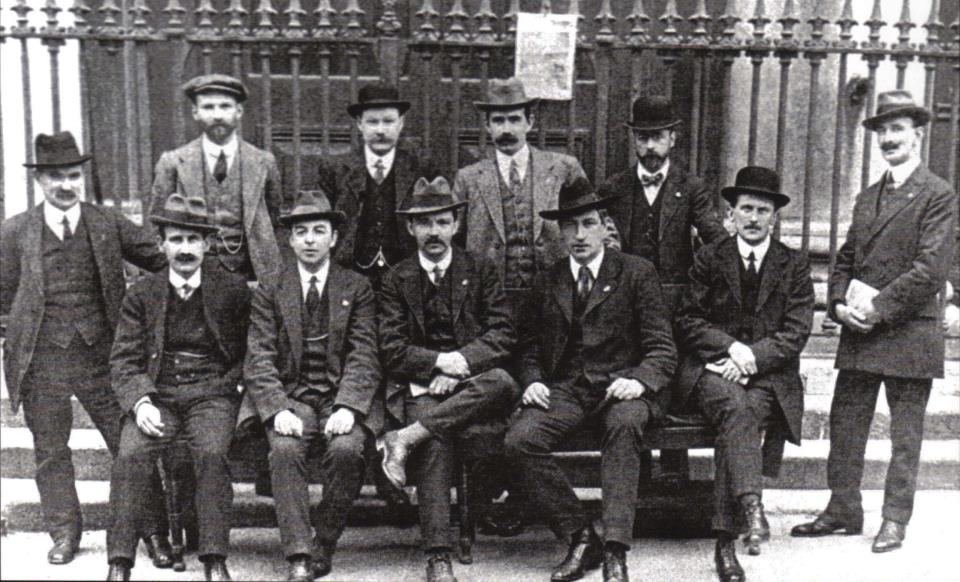
Thomas MacPartlin’s Address to Congress 1917
Extracts from the Presidential Address of Thomas MacPartlin to the twenty–third Annual Meeting of Congress in the Guildhall, Derry, 6 August 1917
Under the Franchise Reform Bill now passing through the British Parliament, women have got some satisfaction for their long and strenuous fight and, although limited in the present
measure, their rights, once recognised, it is only a question of time until everything they asked for and fought for must be conceded.
In my opinion, alongside the question of low wages, the awful conditions under which the workers are housed, is responsible for more disease and misery among the working class than
any of the other grievances by which they are oppressed. In the working class districts in any of our large cities you will be sure to come across the dingy little arch inside which there is a yard surrounded by a lot of dirty little hovels, each containing nine or ten persons, one filthy lavatory and a water-tap in the centre of the yard – common to all the residents who may number eighty or a hundred souls. You will also see the large tenement house with eight or ten families, reeking with dirt and disease, whose men, women and children use the one w.c. and the ash-bin at the bottom of the stairs to receive all the refuse, and keep the house ‘perfumed’ in the intervals between collections, which are usually about twice each week. They will search in vain for bath or wash-house, or any of the other things that make life pleasant; but they will find cooking, washing, eating and sleeping all in the one room; and in many of them provisions made for all the calls of nature. Is it not impossible to expect that children reared under these conditions could grow up to be healthy and moral citizens? After the big lock-out in Dublin in 1913, a Departmental Committee was appointed to enquire and report on housing in that city; and the conclusion they came to was there was nothing so bad in Western Europe!
Even in centres where there are trade union organisations in existence there are great numbers of workers who have not yet learned that the only way they can better their own condition or
emancipate themselves from their present position of slavery, is by uniting with their fellow workers through the Trade Union movement.
And what about ourselves? Is there not something we can do to bring about unity? Why are these twenty or more Unions catering for workers who should all be in one engineering trade
union? And in a small country like Ireland, six or seven unions of woodworkers? Then there are what ignorant people call the ‘unskilled’ unions. In Dublin district alone, there are half-a-
dozen of these, and throughout the country numerous others, all catering for the same class of workers.
Thomas MacPartlm, a delegate from the Amalgamated Society of Carpenters and Joiners, was a member of the Parliamentary Committee of Congress 1912–14 and the National Executive, 1916-21. He was elected President in 1921 but was unable to act due to illness. He died in Geneva in 1923 where he was attending the International Labour Conference as one of the Irish Worker Delegates.
For more about MacPartlin, see J. Anthony Gaughan, Thomas Johnson (1980).
Reproduced from Donal Nevin’s book ‘Trade Union Century’
via my mother & auntie betty. tnx
Posted via email from web lab
